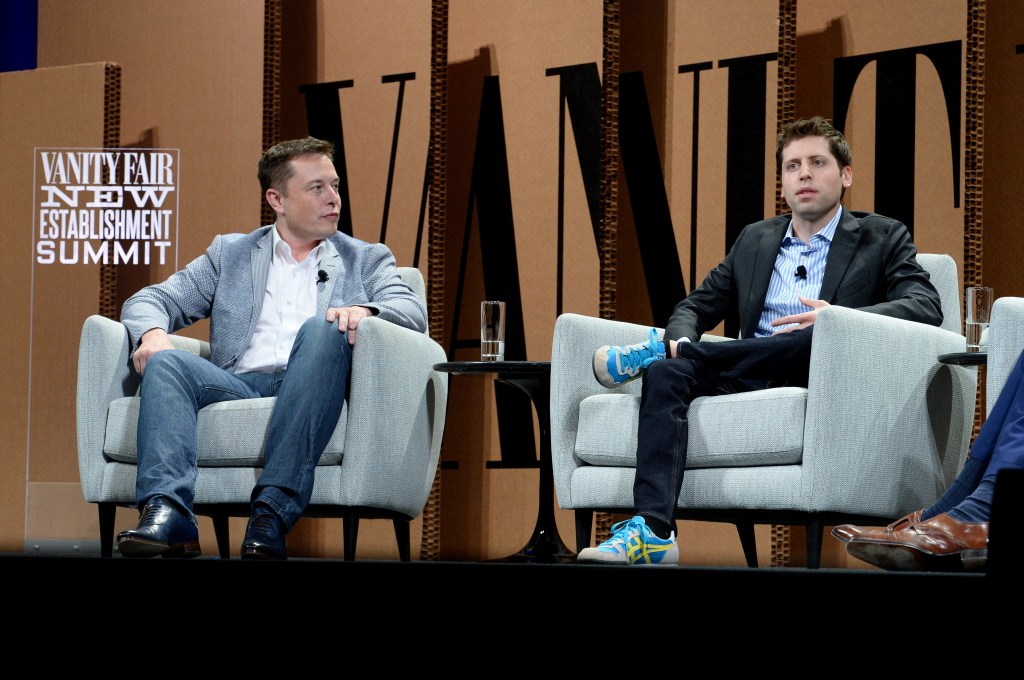Elon Musk sues OpenAI and CEO Sam Altman for spurning ‘original mission’ in favor of profits
Elon Musk sued OpenAI and its chief Sam Altman, alleging that they have led the firm to “radically depart from its original mission” by prioritizing profit over humanity.
Musk’s lawsuit, filed in California’s Superior Court late Thursday, notes that OpenAI’s certificate of incorporation states that its work “will benefit the public,” and that it isn’t “organized for the private gain of any person.”
Nevertheless, OpenAI, under a new board formed in November after Altman’s short-lived ousting as CEO — now seeks “to maximize profits for Microsoft, rather than for the benefit of humanity,” the suit claims.
To demonstrate OpenAI’s deep ties to the tech behemoth, the complaint pointed to Microsoft CEO Satya Nadella’s comment in November as the drama was unfolding — stating publicly “that it would not matter ‘if OpenAI disappeared tomorrow.”
Microsoft’s Nadella “explained that we ‘have all the IP rights and all the capability'” to keep OpenAI’s tech running — including GPT-4, the fourth and most advanced version of ChatGPT, whose internal design Musk alleged “remains a complete secret except to OpenAI — and, on information and belief, Microsoft,” according to the suit.
The suit comes as a rivalry between OpenAI and Musk’s own artificial intelligence startup xAI is heating up.
On Thursday, The Post reported that xAI — which powers the snarky Grok chatbot — is aiming to raise billions of dollars in the coming weeks in a private funding round that could value the company as high as $20 billion. OpenAI has raised more than $11 billion to date, with a secondary stock sale recently valuing the firm at more than $80 billion.
Musk, 52, was on OpenAI’s founding team with Altman and former PayPal CEO Peter Thiel back in 2015 when the AI firm was launched as an open-source alternative to behemoths like Google, which had acquired DeepMind the year before.
Musk and Altman were reportedly friends at the time, though that dissolved when Altman led OpenAI into a partnership with Microsoft, marking a transition away from its purely nonprofit roots, according to Walter Isaacson’s biography on Musk.
OpenAI is still reportedly governed by a nonprofit, though it has a for-profit arm whose prominent investors include Microsoft, which has committed $13 billion to the company as part of a “multi-year agreement.”
As part of the deal, Microsoft received a 49% stake in the earnings of OpenAI’s for-profit arm, according to The Wall Street Journal.
When Altman, 38, was brought back as OpenAI CEO less than two weeks after his resignation, it was part of a deal that eliminated the members of the previous five-member board.
Former Twitter chairman Bret Taylor, former Treasury Secretary Larry Summers, and Quora CEO Adam D’Angelo were appointed to a new nine-member board in November — members Musk alleged in the lawsuit were “hand-picked by Mr. Altman and blessed by Microsoft.”
Musk added in the court documents that he filed the case “to compel OpenAI to adhere to the Founding Agreement and return to its mission to develop AGI [artificial general intelligence] for the benefit of humanity, not to personally benefit the individual defendants and the largest technology company in the world.”
The court filing — which asks for a jury trial and a court order requiring OpenAI to continue to follow its alleged vow to benefit the public rather than Microsoft — was earlier reported on by Bloomberg.
Musk’s legal counsel at Irell & Manella LLP and representatives for OpenAI did not immediately respond to The Post’s request for comment.
The Tesla and SpaceX chief has since been among the most outspoken about AI’s risk to humanity.
On multiple occasions, Musk — the world’s richest person with a $215 billion fortune — has sounded the alarm about AI having “the potential of civilization destruction.”
Last year, the billionaire has called on governments to develop clear safety guardrails for AI, warning that unrestricted development of the tech poses a potential existential threat to humanity.
However, Musk has still been working on a venture called xAI, which boasts its own ChatGPT-style AI-powered chatbot called Grok.
Grok stands out for what Musk described as a “rebellious streak,” which sees the chatbot spitting out responses infused with sarcasm and humor.
Rival Altman, however, has bashed Grok’s output as “cringey boomer humor.”





